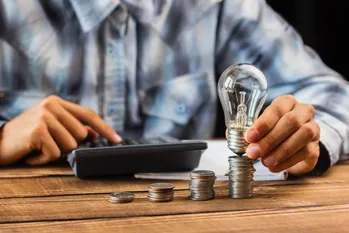Buying a house is a significant milestone, but it can also be a daunting task, especially when it comes to saving for a down payment and closing costs. According to a recent survey, the median down payment for first-time homebuyers is 7% of the purchase price, which can add up to a substantial amount of money. However, with careful planning and discipline, you can make your dream of owning a house a reality. In this article, we'll provide a step-by-step guide on how to save money for a house.
Assess Your Finances
Before you start saving for a house, it's essential to understand your current financial situation. This means tracking your income and expenses, creating a budget, and identifying areas where you can cut back. Start by gathering all your financial documents, including bank statements, credit card bills, and receipts. Then, use a budgeting app or spreadsheet to track your income and expenses for at least three months.
Once you have a clear picture of your finances, it's time to create a budget. Start by listing all your necessary expenses, such as rent, utilities, groceries, and transportation. Then, list your discretionary spending, such as entertainment, dining out, and shopping. Finally, subtract your total expenses from your income to determine how much you can save each month.
Another critical step in assessing your finances is paying off debt. High-interest debt, such as credit card debt, can eat away at your savings and make it harder to reach your goal of buying a house. Consider consolidating your debt or negotiating with your creditors to lower your interest rates.
Set Clear Savings Goals
Once you have a solid understanding of your finances, it's time to set clear savings goals. Start by identifying the type of house you want to buy and the location. Then, research the average purchase price and closing costs in that area. This will give you an idea of how much you need to save for a down payment and other expenses.
It's essential to set specific and measurable savings goals. For example, instead of saying "I want to save for a house," say "I want to save $20,000 for a down payment in the next two years." This will help you stay focused and motivated as you work towards your goal.
Create a Savings Plan
Now that you have clear savings goals, it's time to create a plan to reach them. Here are some strategies to consider:
Automate Savings
One of the easiest ways to save money is to automate the process. Set up automatic transfers from your checking account to your savings account on a regular basis, such as every payday. This will ensure that you're consistently saving and won't be tempted to spend the money elsewhere.
Save Windfalls or Bonuses
If you receive a windfall or bonus, consider putting it towards your house fund. This could be a tax refund, inheritance, or a bonus from work. By doing this, you'll be able to reach your savings goal faster without impacting your monthly budget.
Cut Back on Discretionary Spending
Another way to save money is to cut back on discretionary spending. This could mean eating out less often, canceling subscriptions you don't use, or shopping less frequently. By making small changes to your spending habits, you can free up more money for savings.
Create a Separate Savings Account
Consider creating a separate savings account specifically for your house fund. This will help you keep your savings separate from your everyday spending money and make it easier to track your progress.
Explore Additional Ways to Save
In addition to the strategies outlined above, there are other ways to save money for a house. Here are some ideas:
Increase Your Income
Consider taking on a side hustle or freelancing to earn extra income. This could be anything from driving for a ride-sharing service to selling handmade goods online. By increasing your income, you'll be able to save more money each month without impacting your budget.
Reduce Housing Costs
If possible, consider reducing your housing costs by downsizing or renting out a room. This could free up hundreds of dollars each month that you can put towards your house fund.
Shop Around for Better Deals
Don't be afraid to shop around for better deals on insurance, cell phone plans, and other expenses. By negotiating with your providers or switching to a cheaper option, you can save money without impacting your lifestyle.
FAQ Section
Q: How much should I save for a down payment?
A: The amount you need to save for a down payment will depend on the purchase price of the house and the type of mortgage you choose. Generally, a 20% down payment is recommended to avoid paying private mortgage insurance (PMI), but there are options available with lower down payments. Research the average purchase price in your desired location and speak with a mortgage broker to determine how much you need to save.
Q: How long will it take me to save for a down payment?
A: The amount of time it takes to save for a down payment will depend on several factors, including your income, expenses, and savings goals. Use a savings calculator to determine how much you need to save each month to reach your goal within a certain timeframe. Remember to account for any changes in your financial situation, such as a raise or promotion, that may impact your ability to save.
Q: Should I pay off debt before saving for a down payment?
A: Paying off high-interest debt before saving for a down payment can help you save money in the long run. However, it's not always necessary to pay off all your debt before starting to save. Prioritize paying off debt with the highest interest rates and consider consolidating or negotiating with creditors to lower your payments.
Q: What if I can't afford a 20% down payment?
A: There are options available for homebuyers who can't afford a 20% down payment. Some mortgage programs, such as FHA loans, allow for down payments as low as 3.5%. Additionally, there are down payment assistance programs available in many states that can help cover the cost of a down payment and closing costs. Research your options and speak with a mortgage broker to determine which program is right for you.
Q: Can I still buy a house if I have bad credit?
A: Yes, it's possible to buy a house with bad credit. However, it may be more challenging to qualify for a mortgage and you may end up paying a higher interest rate. Consider taking steps to improve your credit score before applying for a mortgage, such as paying down debt and disputing any errors on your credit report. Additionally, research mortgage programs that are designed for borrowers with lower credit scores.
Q: How can I stay motivated while saving for a down payment?
A: Staying motivated while saving for a down payment can be challenging, but there are strategies you can use to stay on track. Set clear and specific savings goals, create a budget that allows for some discretionary spending, and celebrate small victories along the way. Consider setting up automatic transfers to your savings account to make saving easier and less tempting to skip. Additionally, surround yourself with supportive people who understand your goal and can offer encouragement and advice.
Resources
- Budgeting apps
- Debt consolidation options
- Negotiating with creditors
- Side hustle ideas
- Renting out a room on Airbnb
Conclusion
Buying a house is a significant investment, but it doesn't have to be out of reach. By assessing your finances, setting clear savings goals, creating a plan, and exploring additional ways to save, you can make your dream of owning a house a reality. Remember, the key to success is discipline, consistency, and patience. With these strategies in mind, you'll be well on your way to saving for a house.











